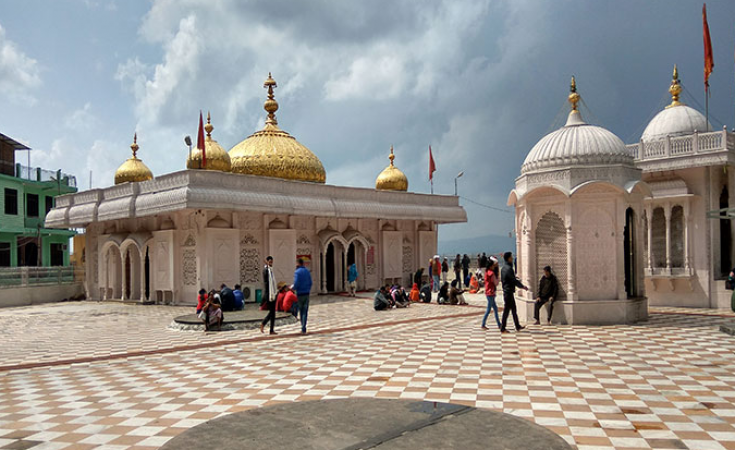
The Jwalamukhi Temple, located in the Indian state of Himachal Pradesh, holds a significant place in the hearts of devotees and pilgrims alike. This ancient temple, shrouded in mystical legends, is dedicated to the divine manifestation of the goddess Jwalamukhi. With its history dating back centuries, the temple attracts countless visitors seeking solace, blessings, and a connection with the divine. This article delves into the intriguing history of the Jwalamukhi Temple and explores the rituals and practices involved in worshipping at this sacred abode.
Historical Background:
The history of the Jwalamukhi Temple traces its roots to mythological tales and historical accounts. According to legend, the goddess Sati, an embodiment of feminine power, immolated herself during the great Daksha Yagna, an ancient Vedic ritual. Overwhelmed by grief, Lord Shiva carried her charred body and began the Tandava dance, causing the gods to fear the destruction that would result from his wrath. In an attempt to calm Lord Shiva, Lord Vishnu severed Sati's body parts with his Sudarshan Chakra, scattering them across various places in the Indian subcontinent. It is believed that the tongue of the goddess fell at the location where the Jwalamukhi Temple stands today.
Historical accounts mention that the Jwalamukhi Temple gained prominence during the reign of the Katoch dynasty, who were ardent devotees of the goddess. The rulers of this dynasty played a pivotal role in constructing and renovating the temple over the centuries, preserving its sanctity and religious significance. Their contributions further solidified the temple's position as a sacred destination for devotees and pilgrims.
Temple Architecture:
The architectural splendor of the Jwalamukhi Temple reflects a blend of Hindu and Mughal influences. The temple complex consists of several structures, including the main sanctum sanctorum, known as the Garbhagriha, and a spacious courtyard where devotees gather for prayers. The Garbhagriha houses the divine manifestation of the goddess Jwalamukhi in the form of an eternal flame that emerges from the rock.
The temple's exterior is adorned with intricate carvings and vibrant colors, exuding a sense of grandeur. Inside, the sanctum is decorated with precious metals, reflecting the opulence of the deity. The architectural brilliance combined with the natural beauty of the surrounding mountains creates a serene and divine atmosphere.
Worship Rituals:
Devotees visiting the Jwalamukhi Temple partake in a series of rituals to seek blessings and offer their devotion to the goddess. The primary focus of worship is the sacred eternal flame, which is believed to be a direct representation of the goddess' divine presence. The temple follows a unique tradition where no idols or statues are worshipped; instead, the flame itself is considered the deity.
The worship rituals at the Jwalamukhi Temple involve a specific sequence. Devotees begin by taking a holy dip in the nearby river and purifying themselves. Afterward, they enter the temple complex barefoot, signifying respect and humility. The highlight of the worship is the offering of coconut, red cloth, and other auspicious items to the divine flame. The fragrance of incense, rhythmic chants, and the resonating sound of bells create an ambiance filled with spiritual energy and devotion.
Festivals and Celebrations:
The Jwalamukhi Temple is known for its vibrant festivals and celebrations that attract devotees from near and far. The Navratri festival, dedicated to the goddess Durga, is of particular significance. During this nine-day celebration, the temple complex is adorned with colorful decorations, and special rituals and performances take place to honor the goddess. The temple premises come alive with the sounds of devotional music, the aroma of delicious prasad, and the fervent chants of devotees.
Other festivals like Diwali, Holi, and Makar Sankranti are also celebrated with enthusiasm at the temple, reflecting the rich cultural heritage of the region.
The Jwalamukhi Temple stands as a testament to the deep-rooted faith and spiritual devotion of its devotees. With its fascinating history, architectural splendor, and unique worship rituals, the temple offers a transformative experience to all who visit. The eternal flame, symbolizing the divine power of the goddess Jwalamukhi, continues to inspire and instill a sense of awe in the hearts of millions.
Kerala Devotees Engage in KARKIDAKA VAVU BALI Ritual Statewide